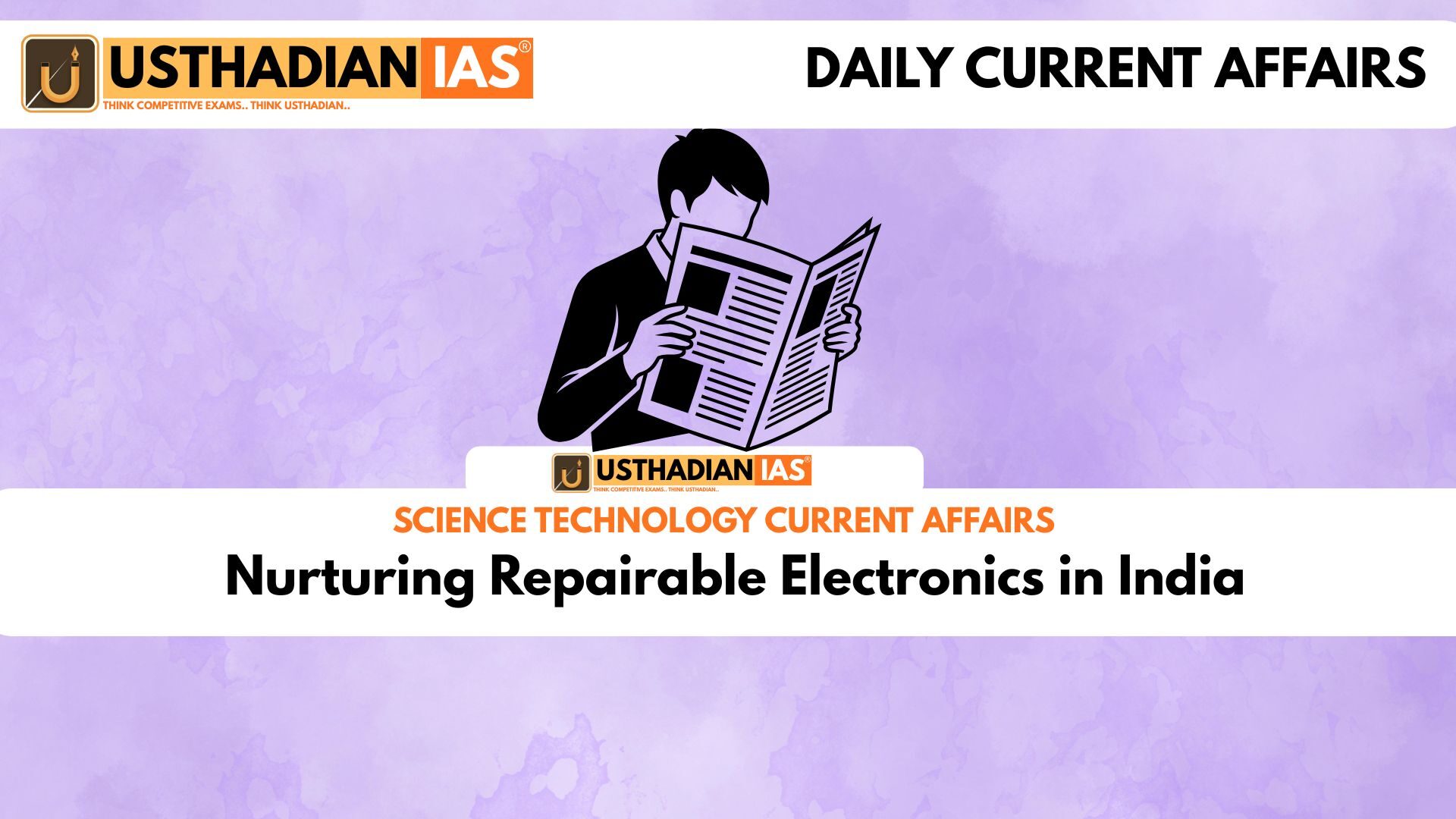Policy Shift for Sustainable Electronics
Nurturing Repairable Electronics in India: India has introduced the Repairability Index, a pioneering measure that evaluates mobile phones and appliances based on repair-friendliness, availability of spare parts, and duration of software support. This initiative empowers consumers to opt for products designed to last longer, while enhancing sustainability.
In tandem, updated e-waste policies mandate minimum payments to boost formal recycling. This legislative shift aims to curb informal dumping, elevate responsible disposal, and enshrine repair as a consumer right.
Static GK fact: India is the third-largest e-waste generator globally, producing over 3.2 million tonnes of e-waste in 2022. Embedding a Repairability Index could significantly reduce informal and hazardous disposal.
Value of Tacit Knowledge in Repair
India’s repair landscape thrives on tacit knowledge—a hands-on, contextual expertise acquired through practice, observation, and sensory awareness rather than formal education. Informal repairers rely on intuitive judgment to diagnose and fix electronics, often improvising in the absence of manuals or training.
This undocumented skill set is a key sustainability asset, enabling devices to function well beyond their intended lifespans and resisting trends like planned obsolescence.
Erosion of Informal Repair Ecosystem
Modern electronics often present intricate designs that undermine reparability. Couple this with shifting consumer behavior favoring disposables, and the informal repair sector finds itself increasingly marginalized.
Current skill development initiatives center around formal industries, failing to capture the improvisational and situational nature of repair work. Without targeted support, this irreplaceable knowledge reservoir risks being lost.
Policy Shortfalls & Avenues for Inclusion
While the E-Waste (Management) Rules, 2022 advance recycling infrastructure, they fall short of promoting repair as a preventive strategy.
Likewise, the National Education Policy, 2020 highlights experiential learning, but does not intentionally nurture repair-oriented skill transfer.
Efforts like Mission LiFE champion repair and reuse rhetorically, yet lack programs directly benefitting repair workers. India must expand policy frameworks to incorporate repairability into product design mandates, procurement practices, and vocational training.
Harnessing AI and Digital Infrastructure
AI and digital public systems—such as e-Shram—present unexploited potential to sustain the informal repair economy.
AI tools could codify repair know-how, transforming nuanced techniques into decision trees or language models for wider dissemination. Simultaneously, digital platforms could connect repairers with training opportunities and social protection schemes, elevating their status as recognized contributors to circular innovation.
Design Ethos for Circular Resilience
The principle of unmaking promotes intentional product design for disassembly, repair, and reuse. Instead of viewing breakdowns as failures, they become learning opportunities.
Informal repairers—adept at salvaging and refurbishing—are key enablers in a circular economy, turning e-waste into remade value. Elevating them as stewards of sustainability can foster an inclusive, resilient, and ecologically aligned electronics ecosystem.
Static Usthadian Current Affairs Table
Nurturing Repairable Electronics in India:
| Fact | Detail |
| Repairability Index introduced | Ranks electronics by ease of repair, parts access, software |
| E-waste policy revision | Includes minimum payments to promote formal recycling |
| Significance of tacit knowledge | Hands-on intuition-based repair skills sustaining longevity |
| Skill development gaps | Existing schemes ignore informal repairers |
| Role of AI and digital platforms | Potential to codify repair practices and support worker visibility |
| Design for unmaking | Products should be easy to dismantle, repair, and reuse |
| Circular economy contribution | Informal repair supports sustainability and waste reduction |
| Policy alignment | Reflects EU’s Right to Repair and UN SDG 12 on consumption |








